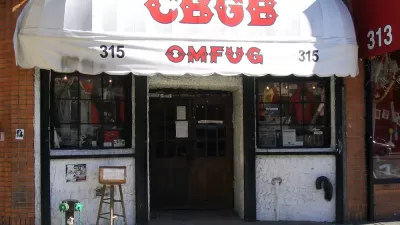The city of Seattle is making more room for alternative transportation modes in its level of service calculations.

The last meeting of the year for the Seattle City Council's Planning, Land Use, and Zoning Committee was a significant one, reports Stephen Fesler, with new regulatory requirements for transportation level-of-service standards (LOS) moving out of committee.
Fesler provides details on the LOS reform approved by the committee:
The proposed changes are designed to better implement recent LOS policy changes that were made through the city’s comprehensive plan update in 2016. One of the key paradigm shifts that took place in the update was to set specific target rates of transportation modes (e.g., walking, biking, transit, and driving) across eight geographic areas (sectors) of the city, which would be achieved by 2035. Within each geographic sector, the comprehensive plan identifies the single-occupant vehicle (SOV) rate as a percentage of total trips in 2016 and a target rate for 2035, which is generally lower than than [sic] the 2016 number. Previously, the comprehensive plan had measured LOS based upon the ratio of traffic volume to arterial capacity on key corridors.
Fesler provides a lot more detail on the potential and desired consequences of the LOS changes.
Also on the agenda at the final committee hearing of the year was new design guidelines for the neighborhoods of Uptown and the University District.
FULL STORY: City Council Poised to Reform Implementation of LOS Standards and New U District, Uptown Design Guidelines

Planetizen Federal Action Tracker
A weekly monitor of how Trump’s orders and actions are impacting planners and planning in America.

Maui's Vacation Rental Debate Turns Ugly
Verbal attacks, misinformation campaigns and fistfights plague a high-stakes debate to convert thousands of vacation rentals into long-term housing.

San Francisco Suspends Traffic Calming Amidst Record Deaths
Citing “a challenging fiscal landscape,” the city will cease the program on the heels of 42 traffic deaths, including 24 pedestrians.

Amtrak Rolls Out New Orleans to Alabama “Mardi Gras” Train
The new service will operate morning and evening departures between Mobile and New Orleans.

The Subversive Car-Free Guide to Trump's Great American Road Trip
Car-free ways to access Chicagoland’s best tourist attractions.

San Antonio and Austin are Fusing Into one Massive Megaregion
The region spanning the two central Texas cities is growing fast, posing challenges for local infrastructure and water supplies.
Urban Design for Planners 1: Software Tools
This six-course series explores essential urban design concepts using open source software and equips planners with the tools they need to participate fully in the urban design process.
Planning for Universal Design
Learn the tools for implementing Universal Design in planning regulations.
Heyer Gruel & Associates PA
JM Goldson LLC
Custer County Colorado
City of Camden Redevelopment Agency
City of Astoria
Transportation Research & Education Center (TREC) at Portland State University
Jefferson Parish Government
Camden Redevelopment Agency
City of Claremont





























